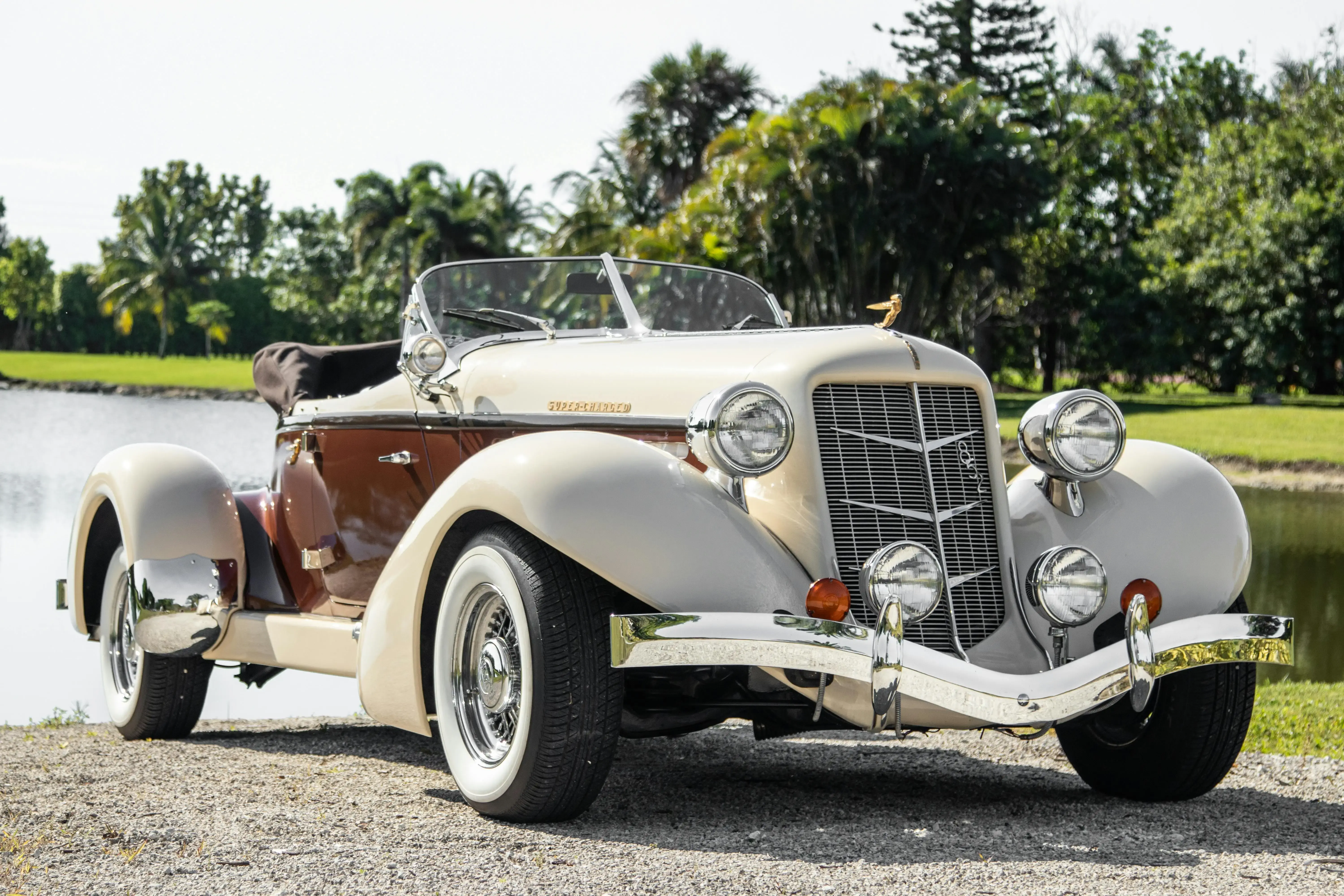Classic Car Shipping To Portugal: Rules And Benefits
Shipping a classic car to Portugal from the USA presents unique opportunities for automotive enthusiasts, offering special regulatory frameworks designed to preserve automotive heritage while providing meaningful tax benefits and compliance advantages. Portugal's recognition of historic vehicles through formal certification creates substantial cost savings and operational benefits for qualifying classic automobiles.
At West Coast Shipping, we specialize in classic car imports to Portugal and across Europe, understanding the nuances of Portugal's Vehicle of Historic Interest (VIH) certification system, tax exemptions, and compliance requirements that maximize benefits for classic car owners.
For comprehensive Portugal import information, see our detailed import guide for Portugal covering all aspects of vehicle imports to Portugal.
Understanding Portugal's Classic Car Definition
Vehicle of Historic Interest (VIH) Classification
Portugal defines classic cars through its formal Vehicle of Historic Interest certification system, which provides official recognition and substantial benefits for qualifying automobiles.
VIH Qualification Criteria:
-
Age Requirement: Minimum 30 years from first registration date
-
Originality Standards: Maintenance of authentic character and specifications without significant modifications
-
Preservation Assessment: Professional evaluation of historic value and condition
-
Documentation Requirements: Comprehensive vehicle history and authenticity verification
-
Certification Process: Formal recognition through authorized Portuguese classic car organizations
Important Note: Age alone does not automatically qualify a vehicle for classic status. The VIH certification requires formal application, inspection, and approval through authorized entities.
Authorized Certification Bodies
Portugal designates specific organizations to provide official VIH certification, ensuring standardized evaluation and recognition processes.
Primary Certification Authority:
-
Museu do Caramulo: Official entity recognized by Portuguese Road Traffic Authority (Order 10 298/2001) to certify Vehicles of Historic Interest
-
FIVA Member: Over 60 years of experience in classic vehicle evaluation and certification
-
Professional Assessment: Comprehensive inspection and documentation review process
-
Certificate Validity: 4-10 years depending on vehicle production year
VIH Certification Benefits and Advantages
Tax Exemptions and Reductions
Certified VIH vehicles may receive substantial tax advantages, though benefits vary significantly based on classification and vehicle age.
ISV (Vehicle Tax) Benefits:
-
Variable ISV Reductions: Significant decreases or potential complete exemptions for vehicles over 30 years with proper certification
-
Age-Based Scaling: Enhanced reductions possible for older vehicles with proper certification
-
Certification Requirement: Benefits apply only to officially certified VIH vehicles
-
Not Guaranteed: The exact benefit depends on specific classification and vehicle age—not every certified VIH automatically receives total ISV waiver
Annual Road Tax (IUC) Exemption:
-
IUC Elimination: Certified VIH vehicles may be exempt from annual circulation tax
-
Usage Restrictions: Exemption conditional on limited annual usage (typically ≤500 km/year)
-
Linked to Certificate Validity: Exemption tied to VIH certification validity period (4-10 years), not requiring yearly re-application
-
Compliance Monitoring: Owners must maintain mileage records and provide documentation upon request
Important VAT Clarification: VAT remains at the standard 23% rate for all vehicle imports, including classic vehicles with VIH status. VIH certification does not reduce VAT—only full exemptions under specific circumstances (such as relocation exemption) eliminate VAT obligations.
Regulatory Compliance Benefits
VIH certification provides operational advantages beyond tax savings that enhance classic car ownership experience.
Inspection Exemptions:
-
Periodic Inspection Relief: VIH-certified vehicles may be exempt from regular mandatory periodic inspection schedules (IPO)
-
Certification-Based: Exemption flows from VIH certification framework, not merely vehicle age
-
Validity Period: Exemption duration tied to certification validity periods
-
Reduced Compliance Costs: Significant savings on mandatory inspection requirements
Low Emission Zone Access
Portuguese cities implementing Low Emission Zones may provide exemptions for properly certified historic vehicles, though regulations vary and evolve.
LEZ Considerations:
-
Lisbon and Porto: Potential VIH exemptions in current LEZ implementation
-
Municipal Variations: Regulations differ by city and continue to evolve
-
Certification Requirements: VIH certification may be necessary for LEZ access benefits
-
Local Verification: Owners must verify current requirements as regulations change
Important Note: LEZ access benefits are possible through VIH certification but require checking local rules, as municipal regulations vary and evolve over time.
Shipping Considerations for Classic Cars
Container Shipping for Maximum Protection
Classic cars require specialized shipping protection that justifies investment in comprehensive container services.
Container Advantages for Classics:
-
Complete Environmental Protection: Sealed containers prevent salt air damage, weather exposure, and contamination
-
Maximum Security: Locked containers with tamper-proof seals eliminate theft risks
-
Professional Handling: Specialized loading equipment ensuring safe transport of valuable vehicles
-
Personal Items: Ability to ship documentation, spare parts, and restoration materials
-
Insurance Benefits: Enhanced coverage options for high-value classic automobiles
Documentation for Classic Car Imports
Classic car imports require comprehensive documentation establishing authenticity, ownership history, and qualification for VIH certification.
Essential Documentation:
-
Original Title: Clear ownership documentation for minimum 6-month period
-
Vehicle History: Comprehensive documentation of ownership, restoration, and modifications
-
Authenticity Records: Factory specifications, production records, and originality verification
-
Restoration Documentation: Professional records of any restoration work performed
-
Certificate of Conformity: EU compliance documentation adapted for historic vehicles
VIH Certification Process
Application and Inspection Procedures
Obtaining VIH certification requires systematic application and professional evaluation through authorized Portuguese organizations.
Certification Steps:
-
Documentation Assembly: Gathering comprehensive vehicle history and authenticity evidence
-
Professional Inspection: Detailed evaluation by certified historic vehicle experts
-
Authenticity Assessment: Verification of original components and specifications
-
Historical Significance: Evaluation of vehicle's cultural and historical importance
-
Official Certification: Issuance of formal VIH certificate with validity period
Certification Costs and Validity
VIH certification involves fees that vary based on complexity and inspection requirements.
Cost Structure:
-
Base Processing Fee: Approximately €75 through Museu do Caramulo for certification processing
-
Variable Costs: Final costs may increase based on vehicle complexity, required documentation, and inspection specifics
-
Additional Expenses: Professional documentation, translation, and inspection preparation costs
Validity Periods:
-
Vehicles produced until 1918: 10-year validity
-
Vehicles produced 1919-1945: 8-year validity
-
Vehicles produced 1946-1959: 6-year validity
-
Vehicles produced after 1960: 4-year validity
Import Strategy for Classic Cars
Pre-Import Planning
Successful classic car imports require strategic planning that coordinates certification processes with import procedures.
Strategic Considerations:
-
Authenticity Documentation: Assembling comprehensive evidence supporting VIH qualification
-
Certification Timing: Coordinating VIH application with import procedures
-
Tax Optimization: Understanding benefit limitations and usage requirements
-
Professional Guidance: Working with experts familiar with VIH certification processes
Cost-Benefit Analysis
Classic car imports involve unique cost structures that must account for certification benefits and ongoing restrictions.
Financial Considerations:
-
Certification Investment: Starting at €75 but potentially higher based on complexity
-
Tax Savings Potential: Variable ISV reductions and possible IUC exemptions for qualifying vehicles
-
Usage Limitations: Annual mileage restrictions affecting practical vehicle use
-
Ongoing Compliance: Renewal costs and documentation requirements over certification validity period
Professional Classic Car Import Services
West Coast Shipping's Classic Car Expertise
Our specialized classic car import services address unique requirements of historic vehicle imports while maximizing available benefits.
Classic Car Services:
-
Authenticity Assessment: Professional evaluation of VIH certification potential
-
Documentation Strategy: Expert assistance preparing certification and import paperwork
-
Shipping Protection: Specialized container services for valuable classic automobiles
-
Certification Coordination: Support for VIH application and approval processes
-
Benefit Optimization: Guidance on maximizing available exemptions while maintaining compliance
End-to-End Classic Car Coordination
Classic car imports require specialized coordination between shipping, certification, and regulatory compliance procedures.
Comprehensive Services:
-
Pre-Import Consultation: Complete evaluation of vehicle eligibility and benefit potential
-
Secure Shipping: Professional container transport with comprehensive protection
-
Import Processing: Expert customs clearance and documentation management
-
VIH Certification Support: Assistance with historic interest certification applications
-
Post-Import Services: Ongoing support for compliance and benefit maintenance
Important Limitations and Considerations
Usage Restrictions and Compliance
VIH certification benefits come with significant usage limitations that must be carefully considered.
Key Restrictions:
-
Annual Mileage: IUC exemption requires driving ≤500 km per year
-
Documentation Requirements: Maintaining mileage records and providing documentation upon request
-
Practical Limitations: Severe restrictions on actual vehicle use and enjoyment
-
Compliance Monitoring: Potential inspections and penalties for violations
Certification Maintenance
Maintaining VIH benefits requires ongoing compliance with certification and usage requirements.
Ongoing Requirements:
-
Periodic Renewal: Certificate renewal every 4-10 years based on vehicle age
-
Authenticity Preservation: Maintaining original condition and avoiding modifications
-
Usage Tracking: Accurate documentation of annual mileage and vehicle use
-
Professional Inspections: Periodic evaluations ensuring continued qualification
Clarifications on VIH Benefits
Understanding the precise nature of VIH benefits prevents misconceptions and ensures realistic expectations.
Important Clarifications:
-
IUC Exemption Process: The exemption from annual road tax is linked to the VIH certification validity period (4-10 years), not requiring yearly re-application. Owners must comply with usage limits and maintain records for potential review
-
ISV Reduction Variability: While many VIH-certified vehicles can achieve significant ISV reductions, benefits vary based on classification and vehicle age—complete exemption is not guaranteed for all certified vehicles
-
VAT Implications: VAT remains at 23% for all imports, including VIH vehicles, unless covered by separate exemptions such as relocation benefits
-
Cost Considerations: Certification fees begin around €75 but may increase based on vehicle complexity and required documentation
Importing classic cars to Portugal offers substantial opportunities through the VIH certification system, providing significant tax advantages and regulatory benefits for qualifying historic vehicles. Success requires understanding both the opportunities and limitations of Portugal's classic car framework.
The combination of potential ISV reductions, possible IUC exemptions, and inspection relief creates compelling benefits, but usage restrictions and certification requirements demand careful consideration of practical implications. The benefits are not automatic or guaranteed—they depend on proper certification, vehicle classification, and ongoing compliance.
Portugal's commitment to preserving automotive heritage through formal recognition creates valuable opportunities for classic car enthusiasts willing to navigate the certification process and comply with usage limitations while understanding the variable nature of available benefits.
For complete information about Portugal vehicle imports, including step-by-step procedures, tax requirements, and shipping methods, see our comprehensive import guide for Portugal.
Import Your Classic Car to Portugal Successfully
Ready to import your classic car to Portugal with professional VIH certification support? Connect with our European import specialists for comprehensive consultation on classic car shipping, VIH certification processes, and benefit optimization that ensures successful historic vehicle imports to Portugal while maximizing available advantages and maintaining regulatory compliance.
You May Also Like
These Related Stories

RoRo vs Container Shipping to Portugal: Which Works Best?

Portugal's Vehicle Tax & Duty-Free Exemptions Explained

-093789-edited.png?width=220&height=79&name=wcs_final_logo_(1)-093789-edited.png)
